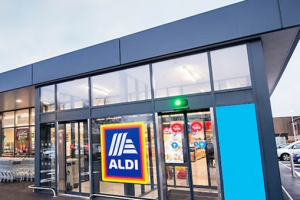SME export finance launch is imminent, says BBA chief

A NEW export finance initiative aimed at making it easier for SMEs to do business overseas is due to be launched within the next few days.
The scheme was due to be launched at a Better Business Finance roadshow event in Manchester yesterday, but British Banking Association (BBA) chief executive Angela Knight told the audience that the relevant minister overseeing the scheme was not ready to make the announcement.
“It will get its big push within a couple of days,” she said.
The measure is one of a strong of initiatives forming part of the Better Business Finance scheme orchestrated by the BBA in response to criticism of the banking sector by business in the wake of the 2008 financial crisis.
Speaking at the event at Manchester’s Radisson Hotel yesterday, Knight reeled off a ream of new initiatives aimed at improving banking support to businesses. These include the new £2.5bn Business Growth Fund which will take equity stakes in
firms with turnover of £10m-£100m, improving access to syndicated debt markets for medium-sized firms, better access to trade finance and mentoring for smaller companies, and a new appeals system for businesses whose loan applications are turned down.
Knight argued that the UK’s banks had responded much more quickly to the crisis than overseas counterparts, and that most UK banks were in a healthier position than competitors and did not need bailouts. However, she acknowledged that new rules on banks’ own capital requirements meant there was less money available.
“Inevitably, that will impact lending. We cannot both hold it and lend it at the same time.
“And of course smaller businesses and medium-sized business are classified as higher-risk. But that doesn’t mean that all is too difficult or that loans are unavailable.”
Also speaking at the event, the Forum of Private Business’s chief executive Phil Orford pointed to a 2010 small business survey which stated that of 316,000 SMEs who attempted to gain access to bank funding last year, around a fifth (66,000) had applications refused.
Addressing a panel which included Knight and representatives of the six high street banks behind the initiative – Barclays, HSBC, Lloyds, RBS, Santander and Standard Chartered – Orford said: “The banks are saying they are open for business, but I want to ask if the odds have been stacked so far in your favour that you’re dampening demand? And is the failure to address issues on lending due to a lack of competition?”
He added that there were a number of measures that banks could take to ensure they remained useful to businesses. These included halting the closure of bank branches and better use of technology to speed up payment processing.







